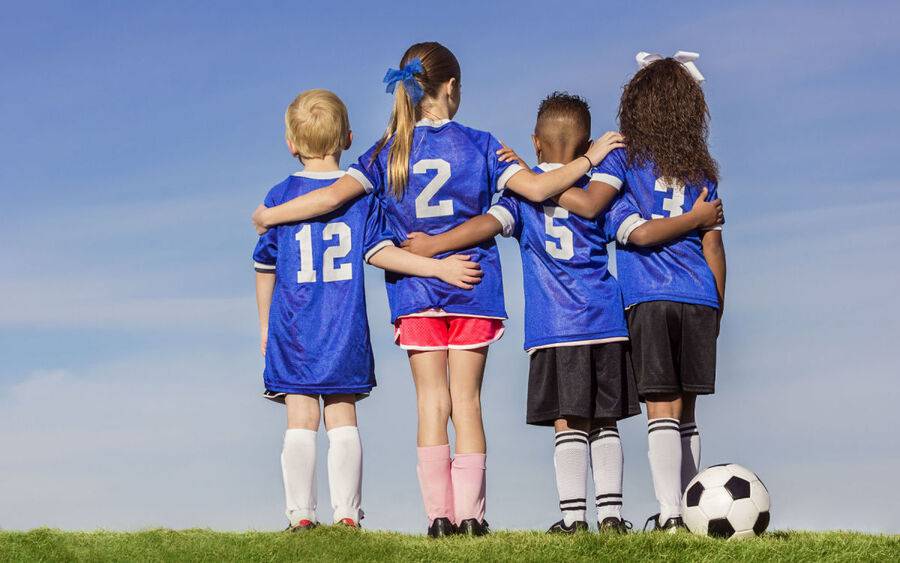
Cultivating Resilience: The Impact of Youth Sports Mental Health Programs
In the dynamic world of youth sports, the focus is not only on physical prowess but also on mental well-being. Youth sports mental health programs have emerged as crucial components in nurturing the holistic development of young athletes. This article explores the significance of these programs and how they contribute to building resilience, fostering positive mental attitudes, and creating a supportive environment for young athletes.
Addressing the Mental Health Landscape: Understanding the Need
The pressures and challenges faced by young athletes extend beyond the playing field. Recognizing the unique stressors and demands, youth sports mental health programs aim to address the mental health landscape. Whether it’s performance anxiety, social pressures, or coping with setbacks, these programs provide a structured approach to understanding and managing the mental well-being of young athletes.
Discover the impact of youth sports mental health programs on resilience and positive mental attitudes.
Building Resilience Through Mindfulness: Mind-Body Connection
One of the key elements of youth sports mental health programs is the incorporation of mindfulness techniques. These programs emphasize the mind-body connection, teaching young athletes to be present in the moment, manage stress effectively, and build resilience in the face of challenges. Mindfulness becomes a tool that not only enhances performance but also contributes to overall well-being.
Positive Coaching Strategies: Nurturing Confidence and Self-Esteem
Youth sports mental health programs often involve coaches trained in positive coaching strategies. Creating a positive and supportive environment is fundamental to nurturing the confidence and self-esteem of young athletes. Coaches play a pivotal role in shaping the mental attitudes of the team, fostering a culture where mistakes are viewed as opportunities for growth, and success is measured beyond the scoreboard.
Team Dynamics and Peer Support: A Community of Understanding
The social aspect of youth sports is integral to the mental health equation. Youth sports mental health programs focus on team dynamics and peer support, creating a community where athletes understand and support each other. Building strong interpersonal relationships within the team contributes to a sense of belonging, reducing feelings of isolation and promoting a supportive atmosphere.
Education on Mental Health: Breaking Stigmas and Fostering Awareness
Many youth sports mental health programs incorporate educational components to break stigmas and foster awareness. By providing information on mental health, common challenges, and available resources, these programs empower young athletes with the knowledge to prioritize their mental well-being. Education becomes a tool for prevention and early intervention, ensuring that mental health is a topic openly discussed and supported.
Personalized Support: Tailoring Programs to Individual Needs
Recognizing that each young athlete is unique, youth sports mental health programs often offer personalized support. Mental health professionals work closely with athletes to understand their individual needs, providing targeted interventions when necessary. This personalized approach ensures that the mental health program aligns with the specific challenges and strengths of each young athlete.
Parental Involvement: Creating a Unified Support System
Youth sports mental health programs extend their reach to involve parents in the process. Creating a unified support system where parents, coaches, and athletes work collaboratively contributes to the overall effectiveness of these programs. Parental involvement includes education on recognizing signs of mental health challenges, fostering open communication, and being advocates for their child’s mental well-being.
Preventive Measures: Focusing on Long-Term Mental Health
Beyond addressing immediate concerns, youth sports mental health programs also emphasize preventive measures. Teaching young athletes coping mechanisms, stress management techniques, and resilience-building strategies equips them with lifelong skills to navigate the challenges they may face not only in sports but also in various aspects of their lives.
Holistic Development: Nurturing Future Leaders
Youth sports mental health programs play a vital role in the holistic development of young athletes. By prioritizing mental well-being alongside physical skills, these programs contribute to the formation of well-rounded individuals who are not only skilled athletes but also resilient, confident, and compassionate future leaders.
Exploring Youth Sports Mental Health Programs at Enlignefrsports.com
For those interested in delving deeper into the world of youth sports mental health programs, Enlignefrsports.com serves as a valuable resource. The platform offers insights, reviews, and updates on the latest developments in youth sports mental health, providing a comprehensive view of the programs that are making a positive impact on young athletes. Stay informed about the transformative power of mental health programs in youth sports.
Conclusion: Nurturing the Mind for Athletic Success
Youth sports mental health programs are not just about winning games; they are about nurturing the minds of young athletes for lifelong success. By fostering resilience, positive attitudes, and a supportive community, these programs contribute to the creation of mentally strong individuals who can face challenges with confidence both on and off the field. As society recognizes the importance of mental health, youth sports mental health programs stand as beacons of positive change, shaping a future where mental well-being is as valued as athletic prowess.



